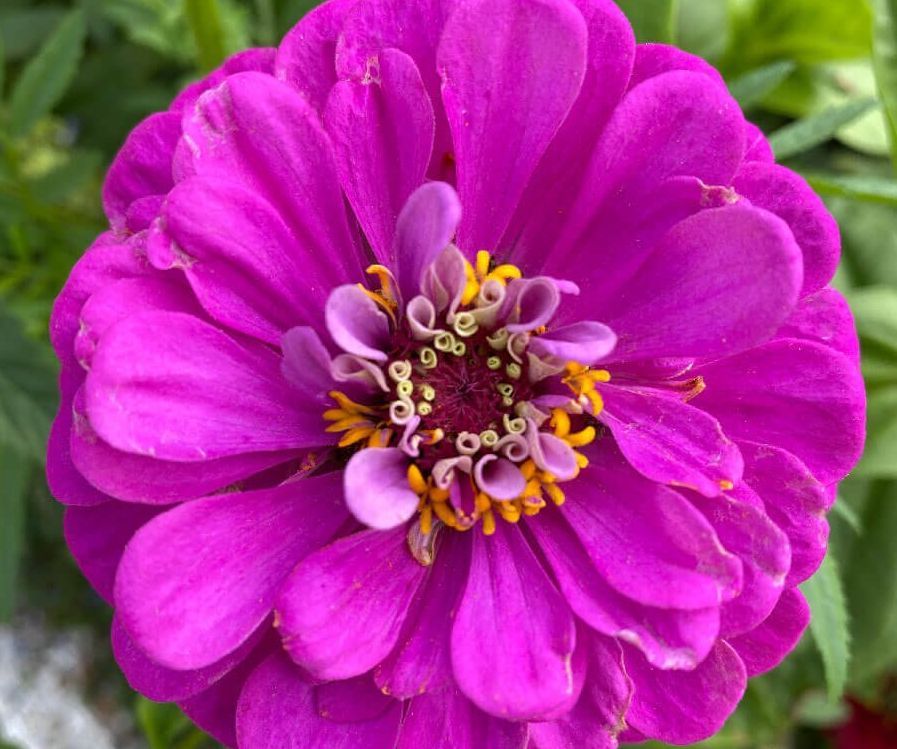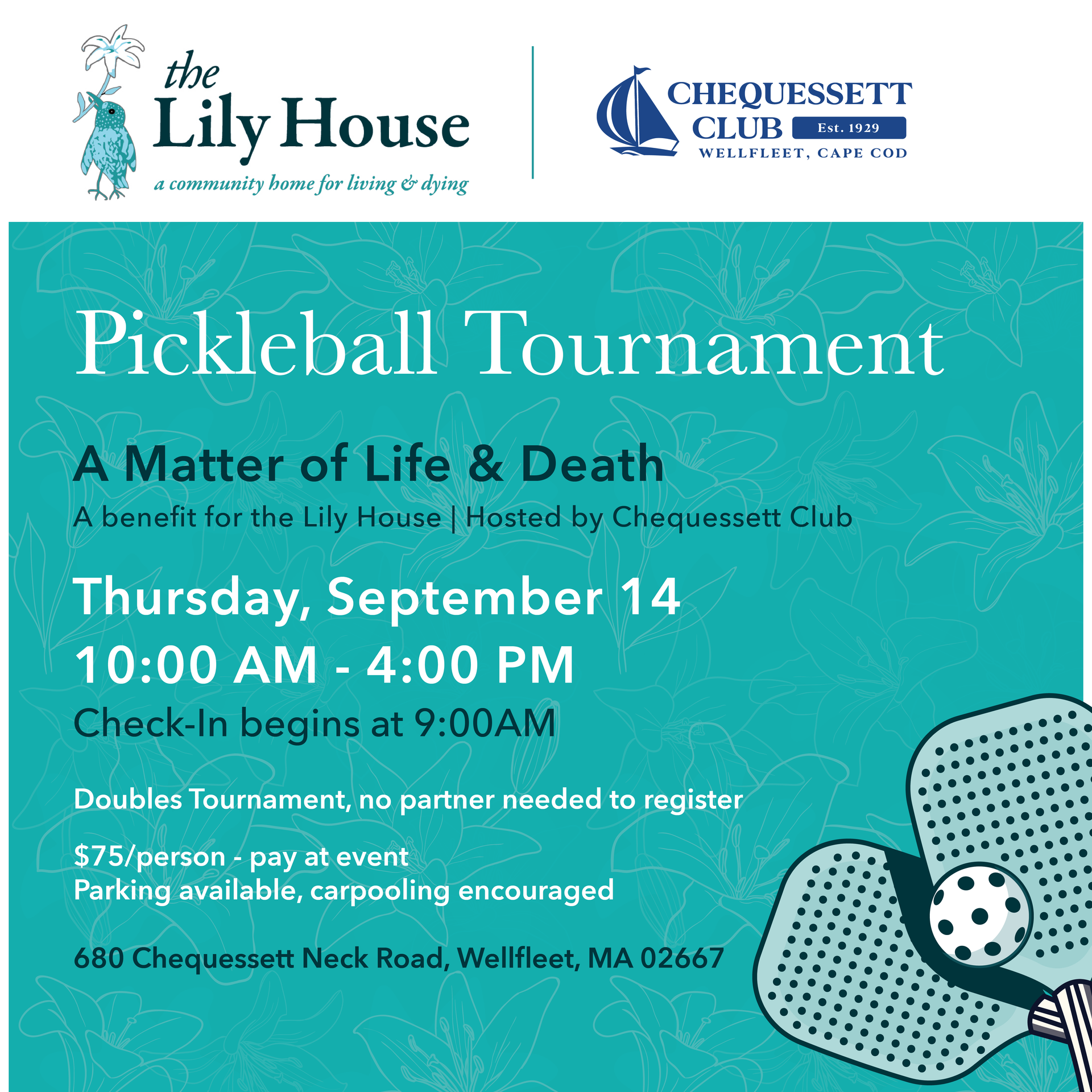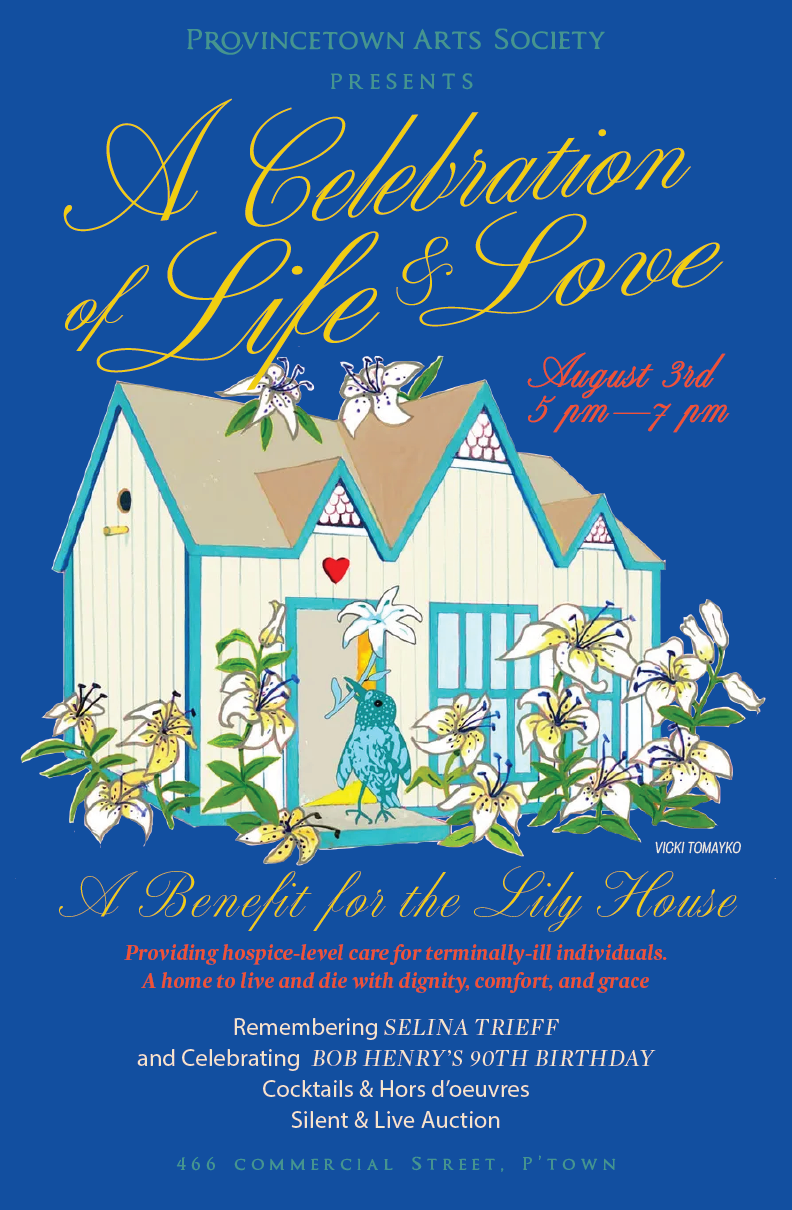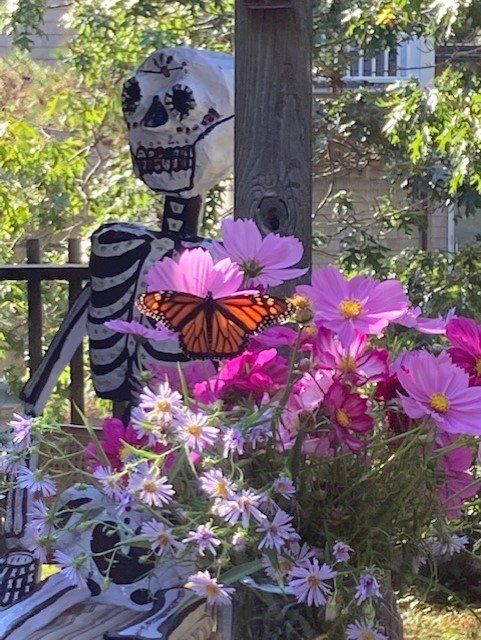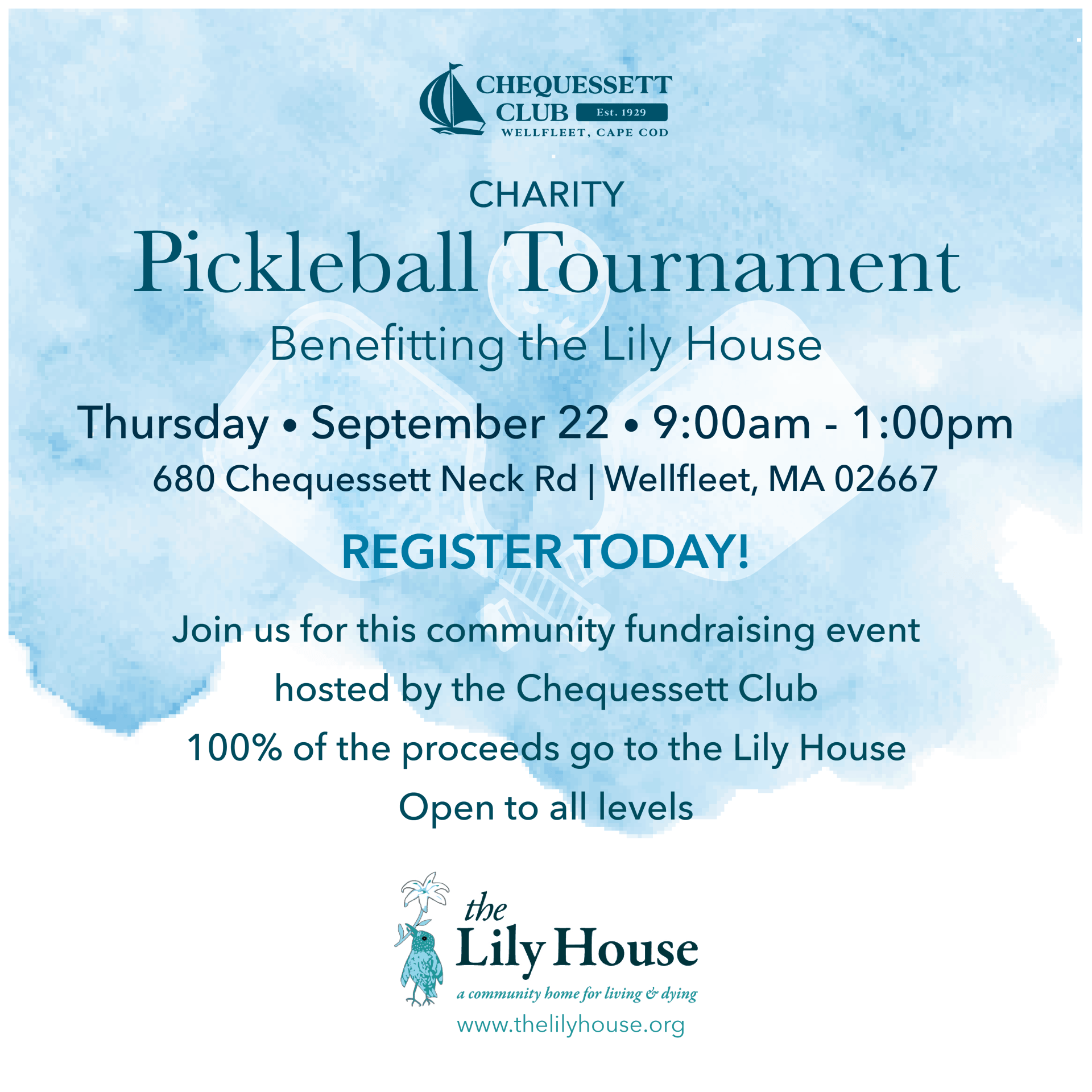End-of-Life Care for Your Beloved Pet
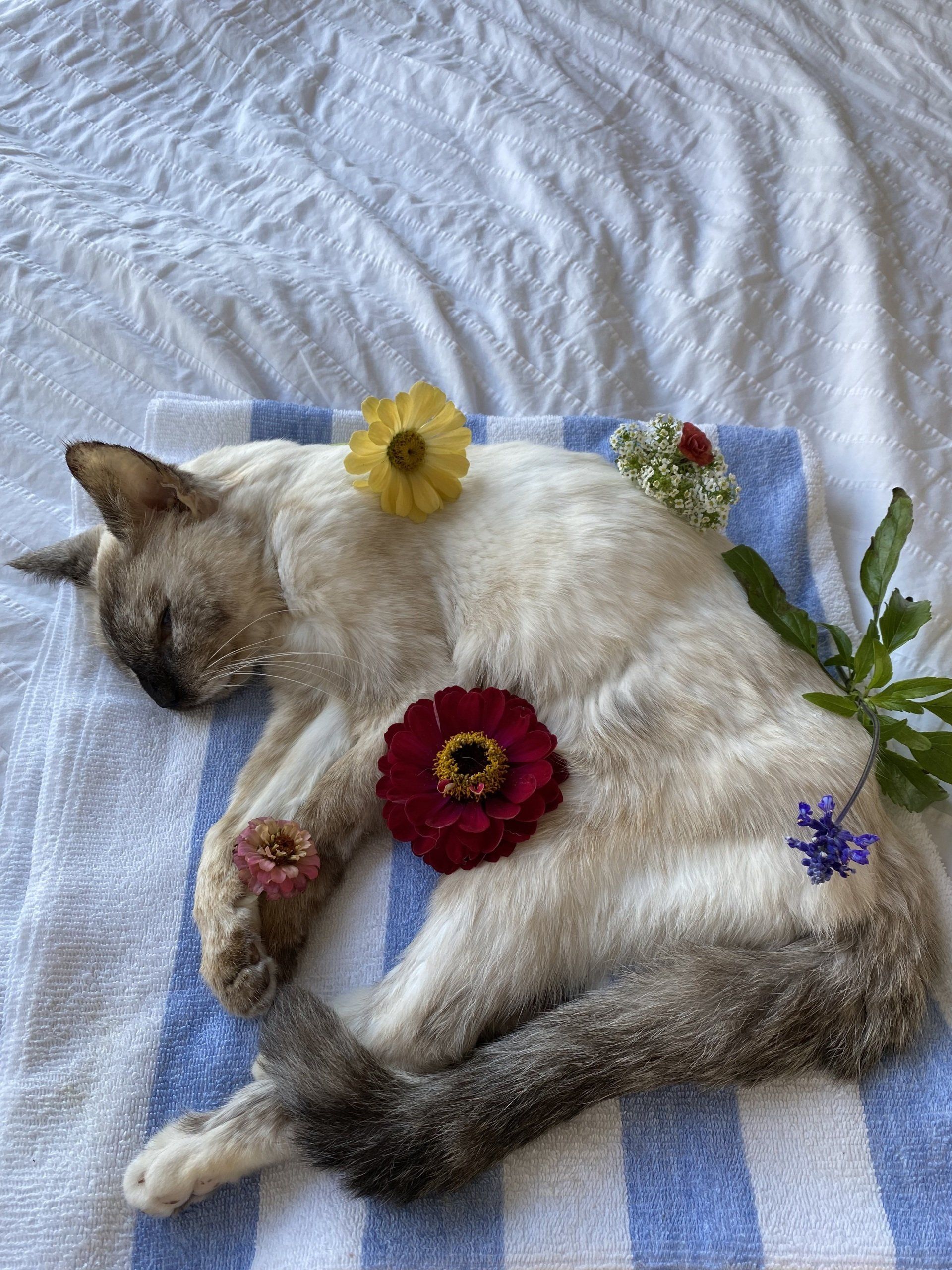
The death of a companion animal can be just as traumatic and heartbreaking as losing a beloved human. We enter the relationship knowing our pets have a shorter life expectancy — and perhaps we love them a bit more fiercely because our time with them is limited and precious. By being present with our pets, and knowing the signs of decline, we can ensure that our last moments with them are full of love, grace, and comfort.
Signs that your pet is nearing end-of-life:
- Less active, lethargic
- Loss of interest in previous activities
- Eating and drinking less
- Loss of weight and muscle tone
- Loss of mobility, limping
- Urinating or defecating in the home
- Whimpering and flinching with touch
- Change of behaviors or personality
- Hiding
If your pet has any of these symptoms or been given a terminal diagnosis, it is important to discuss next steps with your veterinarian. Bring a prepared list of questions and ask for all available treatment and comfort options. At-home hospice care with treatment may be a possibility. Medications, modified diets, mobility aids, incontinence pads, shallow food bowls, and altered sleeping arrangements can help sustain your pet’s quality of life.
Although a painful decision, choosing to euthanize a sick or aging pet can be an act of compassion and love. Consider how your pet’s pain and suffering are affecting their quality of life. Ask yourself and your family members the following questions:
- Are they having more good days than bad?
- Are you able to provide the at-home care and support your pet needs?
- If you delay euthanasia, can you still alleviate your pet’s pain?
- Why are you considering delaying euthanasia? Are you extending your pet’s life for a legitimate reason, like waiting for a family member to return home to say good-bye, or are you just delaying the inevitable?
- What would it be like for your pet and what would you need to do to prepare for a “natural death”? “Letting nature takes its course” may seem preferable, but it does not necessarily mean a painless, peaceful, or less traumatic death — especially if your pet dies when you are not there to provide comfort and care in the last few moments of life.
Feelings of uncertainty, regret, and sadness are normal and a sign of your devotion to your pet. Be gentle with yourself, too.
Preparing for Euthanasia
Even though your companion’s death is inevitable, you still have control over when, where, and how your pet will die. Planning for your pet’s peaceful and loving death is the last gift you can give them. In addition to euthanasia at a clinic, some veterinarians offer in-home euthanasia. This eliminates the trauma and anxiety of bringing your pet to a medical office and allows your pet to die peacefully among family, in their home and with their favorite blanket, toys, and other items. The opportunity to have a home funeral or sit vigil as a family and take time to say goodbye is a priceless opportunity.
For more information on pet loss:
Pet Loss Grief Resource | Best Friends Animal Society
Lily House Board Member Angela Shook is an End-of-Life Doula and Companion Animal Doula. Dana Durrance, M.A., University of Vermont Companion Animal Doula Program, and Barbara Karnes, RN, provided Angela with some of the information in this article.
